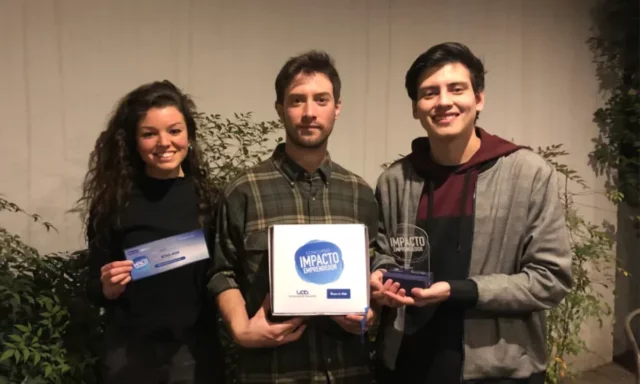The device that will be sent to space and whose creation was in charge of the Costa Rican student enterprise ‘Orbital Space Technologies’ was presented. That device will be sent into outer space by means of a rocket that will take off from the Esparange spaceport, located in Sweden at the end of November. Project MUSA is the name of this space mission.
The objective is to find a treatment for the disease known as “Panama disease”, which affects banana plantations around the world. Valeria Dittel, CEO of Orbital Space Technologies, explained that the disease attacks crops and causes the death of plants, endangering an industry that generates US$ 138 million a year.
Dittel explained that the idea is to search in space for solutions for the benefit of this planet through the device that will carry a fungus that causes evil and another, antagonistic, that is, a bio-controller. It is intended to analyze whether microgravity conditions alter the DNA of these fungi. Also how that information could be applied to develop a treatment against the disease. For his part, Carlos Rodríguez, Head of Operations at Orbital Space Technologies, explained that this first phase’s priority is to validate the technology and collect supplies.
Who participates in this project?
The startup Orbital Space Technologies (OST) is in charge of the project, in collaboration with the Space Systems Laboratory (SETEC-Lab). In addition to the Center for Research in Biotechnology (CIB) of the TEC, the Central American Association of Aeronautics and Space (ACAE) and Swedish Space Corporation (SSC).
The flight is being financed through a fundraising campaign and with the help of the sponsorship of private companies, in particular Arroz Imperio, Liberty Empresas, and Nassar Abogados Centroamérica. “For the Space Systems Laboratory, this project is important, because it is the first time that a private company from Costa Rica, which is OST, fully develops and implements a space experiment for a suborbital flight advised by TEC”, commented Dr. Johan Carvajal Godínez, from SETEC-Lab.
Carvajal explained that MUSA will allow testing the Costa Rican technology necessary for the development of new experiments on board spacecraft, such as the International Space Station (ISS). Dittel stressed that the company is made up of a majority of women and almost all of them continue studying both at the Technological Institute of Costa Rica (TEC) and at other public and private universities. “It is a novel approach that would open the way to an innovative solution to the problem that has afflicted the banana sector for more than 70 years”, Rodríguez concluded.
This is the second device sent to space with a Costa Rican seal and made by a private company. The first of them was sent 4 years ago through the Irazú Project carried out by the TEC.

Banana in Costa Rica and the disease
The company estimates that, in Costa Rica, around 140,000 jobs are generated by companies dedicated to the banana activity. This industry is one of the most important for the country, as it has become one of the star products abroad. In 2021 alone, it exported to the whole world, with the United States and the European Union being its main markets, for more than US$ 1,000 million. However, this disease generates annual losses of US$ 8,000 million worldwide.
“This same fungus has already eradicated the most consumed banana variety in ancient times, the Gros Michel. It also threatens to do the same with the Cavendish variety”, said the TEC. “The most dangerous thing about this plague, apart from the fact that it has no cure, is that it can remain in the soil for about four decades. This makes banana plantations in the affected areas impossible”, he continued. The name of the project alludes to the Musa genus, which groups together the banana and plantain species, among others.

For those who have experienced shifts in consciousness and know that more peace, joy, and love awaits in a better living environment. A bold shared vision. A living community and hub for innovation. A sustainable ecosystem for living and working. A model for the new future.
